April14
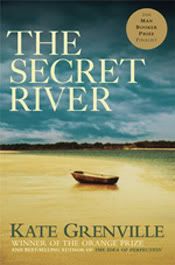 The Secret River
The Secret River by Kate Grenville is the highly touted first book in the Thornhill trilogy which centres on the settlement of the colony of New South Wales in Australia. While I enjoyed this book and recommend it, it didn’t knock my socks off.
by Kate Grenville is the highly touted first book in the Thornhill trilogy which centres on the settlement of the colony of New South Wales in Australia. While I enjoyed this book and recommend it, it didn’t knock my socks off.
Perhaps that’s because I read the back story about Grenville’s research, in the non-fiction Searching for the Secret River , before I read the novel.
, before I read the novel.
It was a quandary: I signed up for Amanda’s Truth in Fiction Reading Challenge which requires me to read book pairs that are comprised of one fiction book and one related non-fiction book. Whispering Gums suggested that I try these two books and I immediately reserved them at the library. Unusually, they arrived the same day, so I had to make a decision: which would I read first? The non-fiction was an inter-library loan with no renewal allowed & $1 fine for overdues, so it won the toss.
When Grenville first considered the idea of searching her family history, she thought she would write a non-fiction book about her ancestors. However, she found complications in this concept. As she says “When you were a white Australian, investigating your own family history could lead you into some murky territory.”
Grenville is referring here mainly to the treatment of the Aboriginal people – a tragedy repeated as well in North & South America as white Europeans moved to those places to live, displacing the native peoples who occupied the land before them. Grenville determined that she “might not be able to enter the Darug consciousness, but (she) could make it clear that there was one.”
This approach to the story required that she be able to imagine her great-great-great-grandfather’s attitudes and reactions, of which there was little record. It became apparent to her that a piece of fiction would allow her greater scope in telling the story and taking into account the windows into the cultures of both sides that she hoped to deliver.
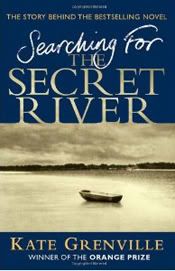 Before I started Searching for the Secret River
Before I started Searching for the Secret River , I was afraid that I might be bored with dry facts and history. Indeed, not. Grenville’s writing is simple and lovely to read, both in fiction and in non-fiction. I particularly enjoyed the genealogy aspect of her search as I also have, in the past, traced my family tree. Her descriptions of the thrill of standing on the very dock on which her ancestor worked, or in finding the court records which contained his “voice, speaking directly across nearly two centuries! The actual phrase he used!” brought back similar elations in my genealogical investigations.
, I was afraid that I might be bored with dry facts and history. Indeed, not. Grenville’s writing is simple and lovely to read, both in fiction and in non-fiction. I particularly enjoyed the genealogy aspect of her search as I also have, in the past, traced my family tree. Her descriptions of the thrill of standing on the very dock on which her ancestor worked, or in finding the court records which contained his “voice, speaking directly across nearly two centuries! The actual phrase he used!” brought back similar elations in my genealogical investigations.
Knowing the “facts” then, I began the fictional account, The Secret River . The story is told from the point of view of William Thornhill, born into poverty, and an apprentice riverman in late 18th century London. Grenville tells us of the temptations of his work:
. The story is told from the point of view of William Thornhill, born into poverty, and an apprentice riverman in late 18th century London. Grenville tells us of the temptations of his work:
“He loved the docks for their excess. So many casks of brandy, sacks of coffee, boxes of tea, hogsheads of sugar, bales of hemp.
With such a quantity, how could a little be missed?”
Thus, Thornhill is drawn into thievery which leads to a sentence of death – or exile in Australia. He & his wife Sal and their young son make the long journey down under. Once there, they face the challenge of building a new life in a strange climate and unknown country, inhabited by mysterious black people whose culture is unlike anything they have experienced.
The author has done an excellent job of providing insight into the lifestyle of the aboriginal people and the culture clash that occurred between them and the new settlers. She also helped me to understand how the British culture that the Thornhills and their countrymen tried to establish permutated into a new set of values – one that by necessity took into account the very land which they tried to subdue.
But, having read the back story, I knew how the novel ended and that compromised the suspense that other readers might feel in the plot. Having said that, I still maintain that it was a very good reading experience.
If you haven’t read either of these books and both interest you, you’ll probably enjoy the fiction account more if you read it first. There’s always the possibility that you’ll then be bored by the build-up to its writing in Searching. But if you enjoy history, genealogy, or just observing the birth of a really good story, you’ll still want to read the non-fiction as well. Four stars to both.
The Secret River qualifies for the Truth in Fiction Reading Challenge, as well as for the What’s in a Name Reading Challenge, the Global Reading Challenge as my Australian entry, and the Australian Women Writers Reading Challenge.
Searching for the Secret River qualifies for the Non-Fiction Non-Memoir Challenge, the Seconds Reading Challenge, the I Want More Challenge, and the Dewey Decimal Reading Challenge.
For Canadian readers:
The Secret River
Searching For The Secret River






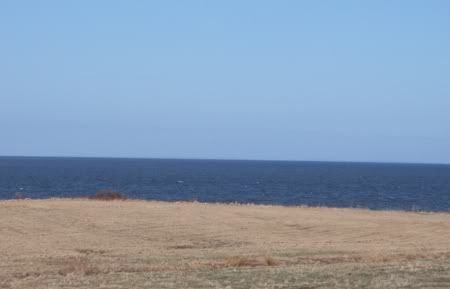
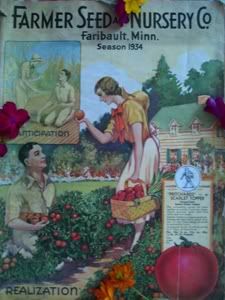 Introducing the piece The $64 Tomato,
Introducing the piece The $64 Tomato, 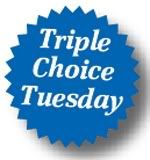 Kimbofo over at the great blog
Kimbofo over at the great blog 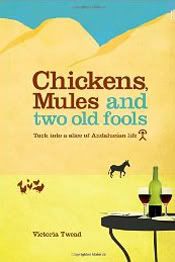 Tired of the dreary British climate as she and her husband Joe neared retirement, they decided to sell in Britain and move to sunny Spain. The book begins with (Victoria’s) discontent with England, the process of their decision to make the move, and their search for the ideal piece of Spanish real estate (“The House”). Finding a reliable real estate agent was aided greatly by their serendipitous meeting with another ex-pat who had lived in Spain for some time.
Tired of the dreary British climate as she and her husband Joe neared retirement, they decided to sell in Britain and move to sunny Spain. The book begins with (Victoria’s) discontent with England, the process of their decision to make the move, and their search for the ideal piece of Spanish real estate (“The House”). Finding a reliable real estate agent was aided greatly by their serendipitous meeting with another ex-pat who had lived in Spain for some time. 
 Before I started
Before I started 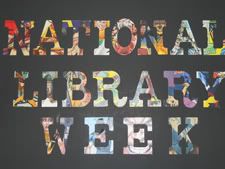 Since the
Since the 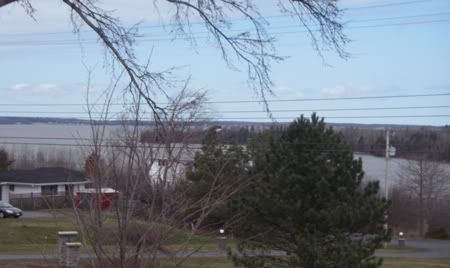
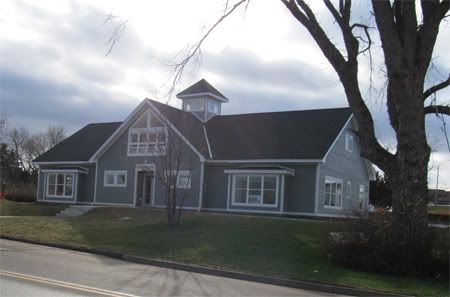
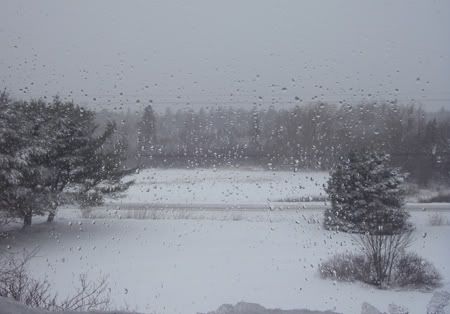


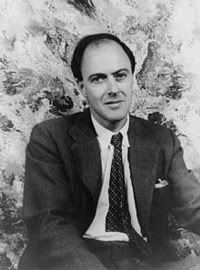
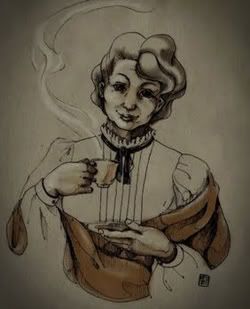 Just ten pages long , The Landlady is classic Dahl. Young Billy Weaver, newly-appointed apprentice salesman, is sent out from London to Bath on the “slow afternoon train”, and told to find his own lodgings. A Bed & Breakfast sign beckons to him from a brightly-lit window that Billy peeks into. He sees a brightly-colored parrot in a cage, a “pretty little dachshund (…) curled up asleep” in front of the fire burning in the hearth, and a room filled with pleasant furniture.
Just ten pages long , The Landlady is classic Dahl. Young Billy Weaver, newly-appointed apprentice salesman, is sent out from London to Bath on the “slow afternoon train”, and told to find his own lodgings. A Bed & Breakfast sign beckons to him from a brightly-lit window that Billy peeks into. He sees a brightly-colored parrot in a cage, a “pretty little dachshund (…) curled up asleep” in front of the fire burning in the hearth, and a room filled with pleasant furniture.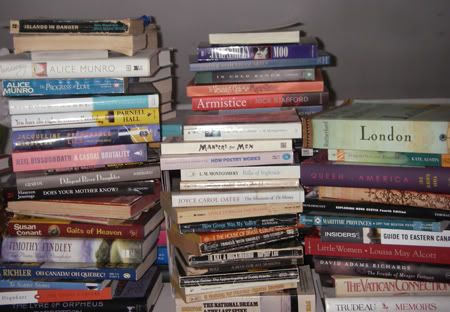
 I was busy this month with special volunteer work and so my reading list is relatively short. I did manage to read two full e-books on my Kindle, meaning I spent a little more time on the treadmill – and that’s a good thing!
I was busy this month with special volunteer work and so my reading list is relatively short. I did manage to read two full e-books on my Kindle, meaning I spent a little more time on the treadmill – and that’s a good thing!
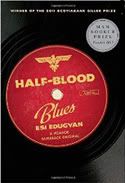 2.
2. 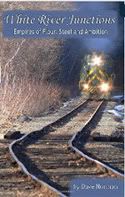 7.
7. 